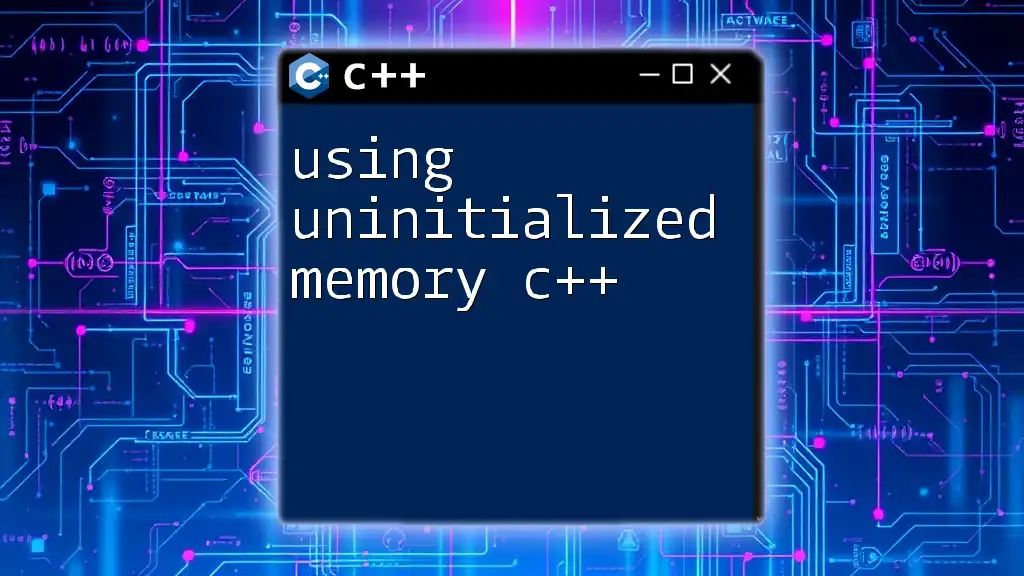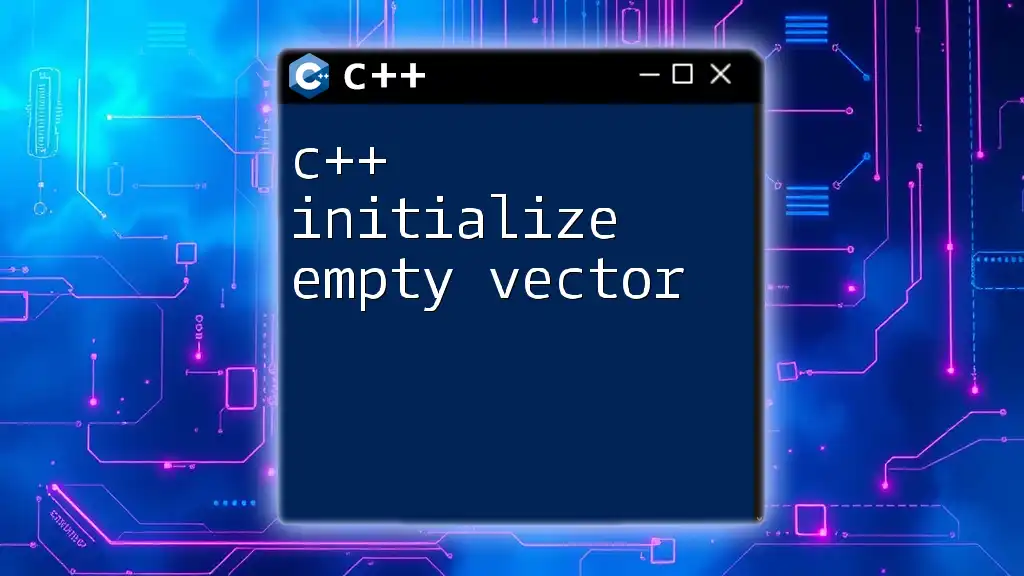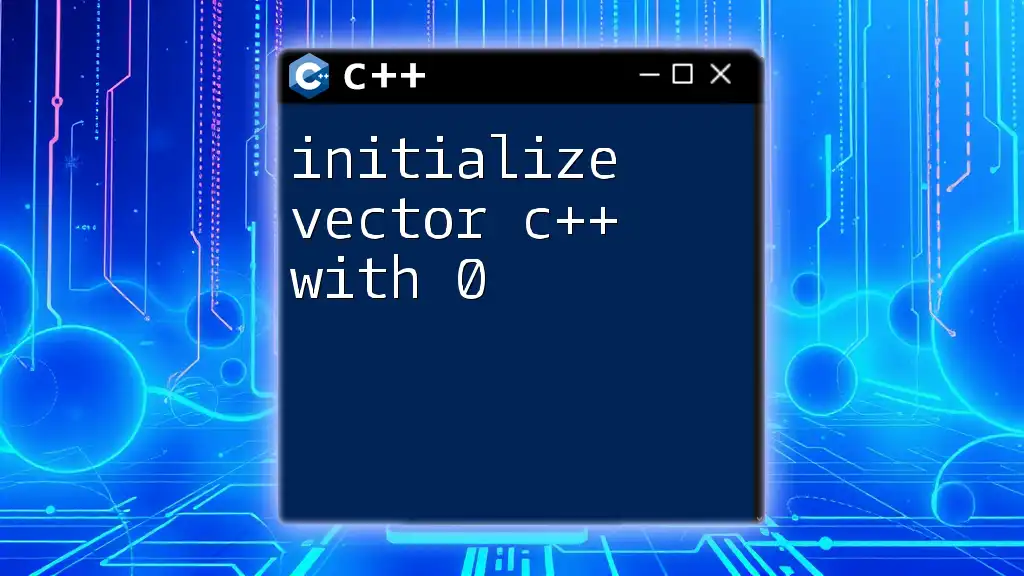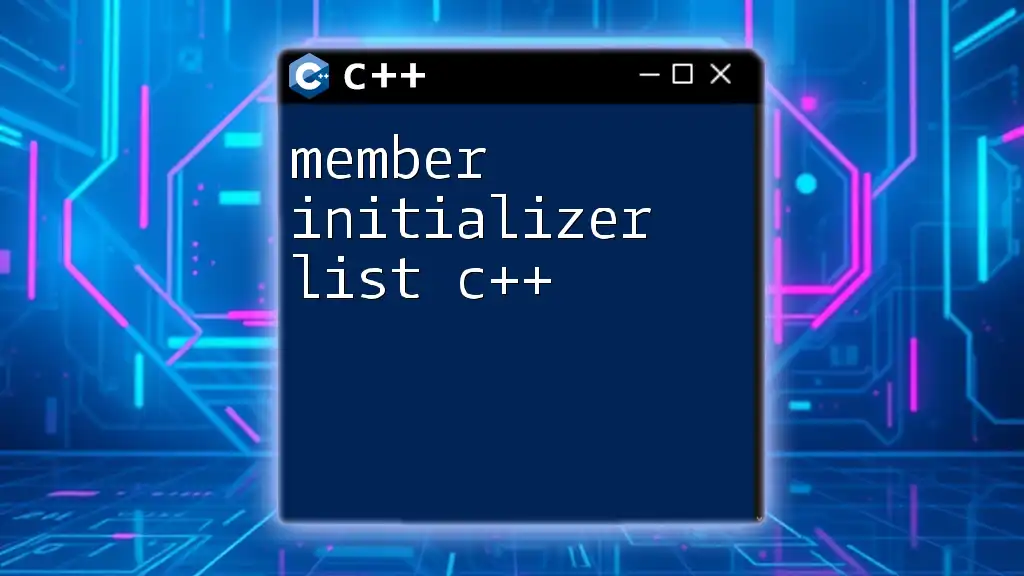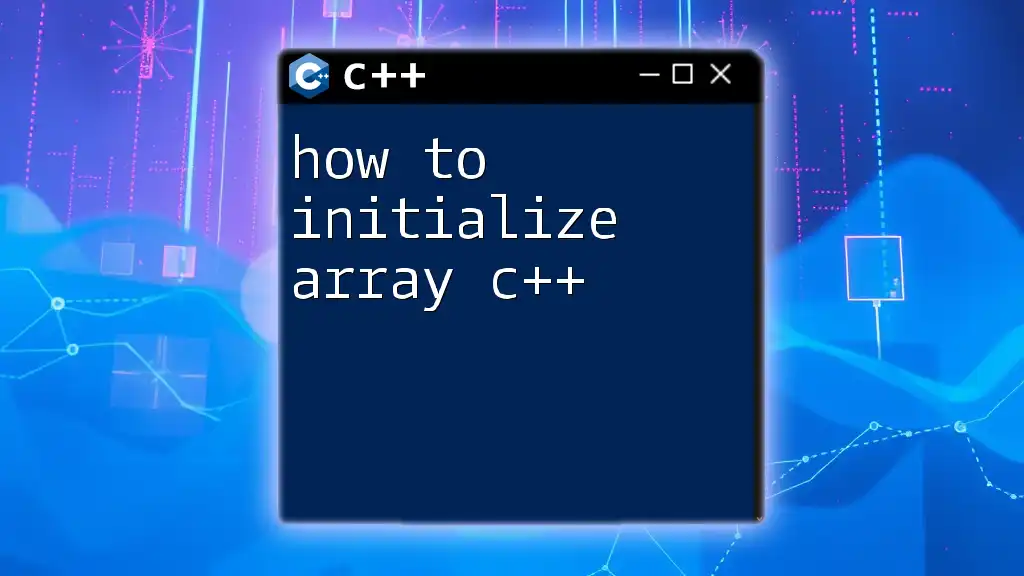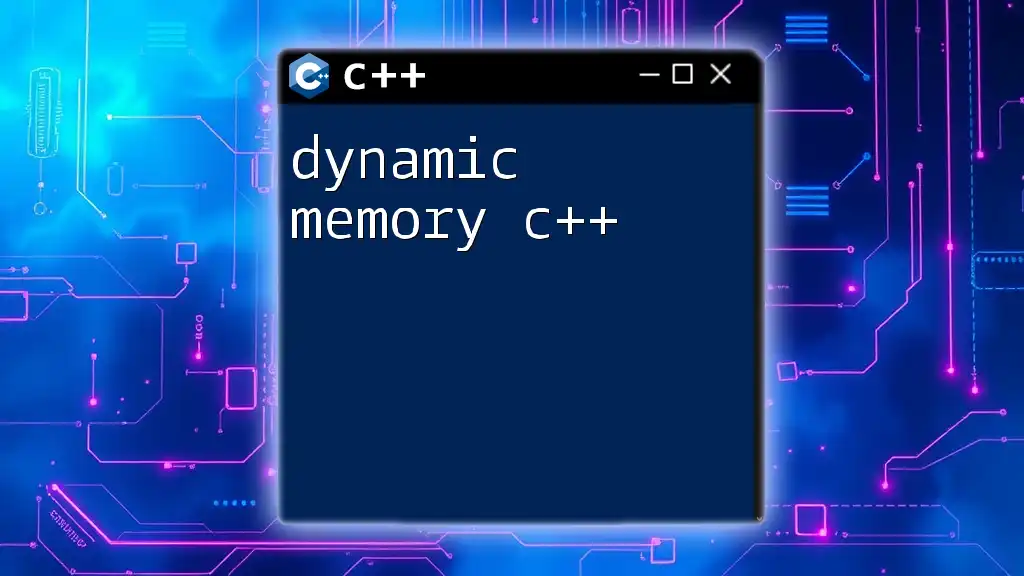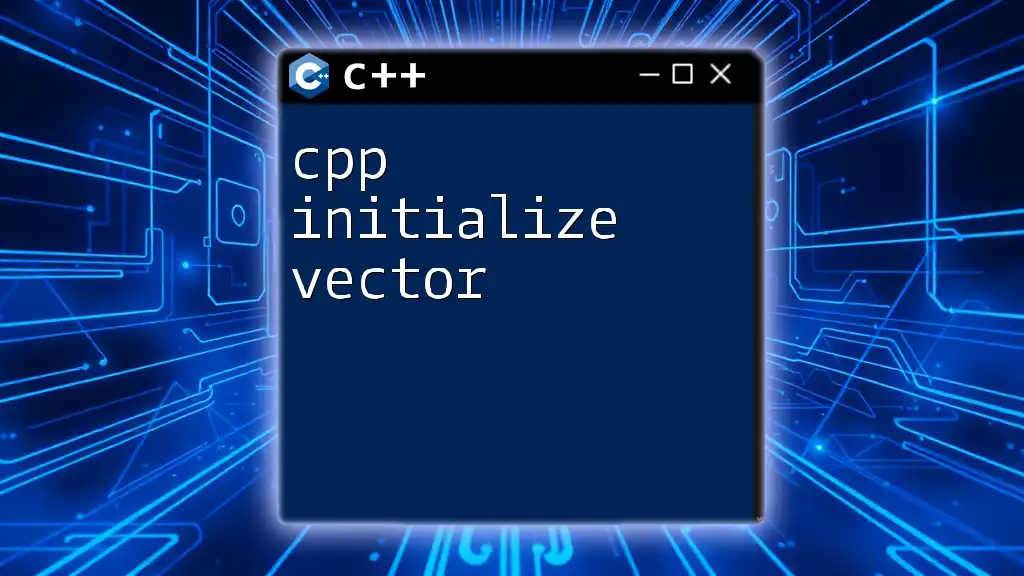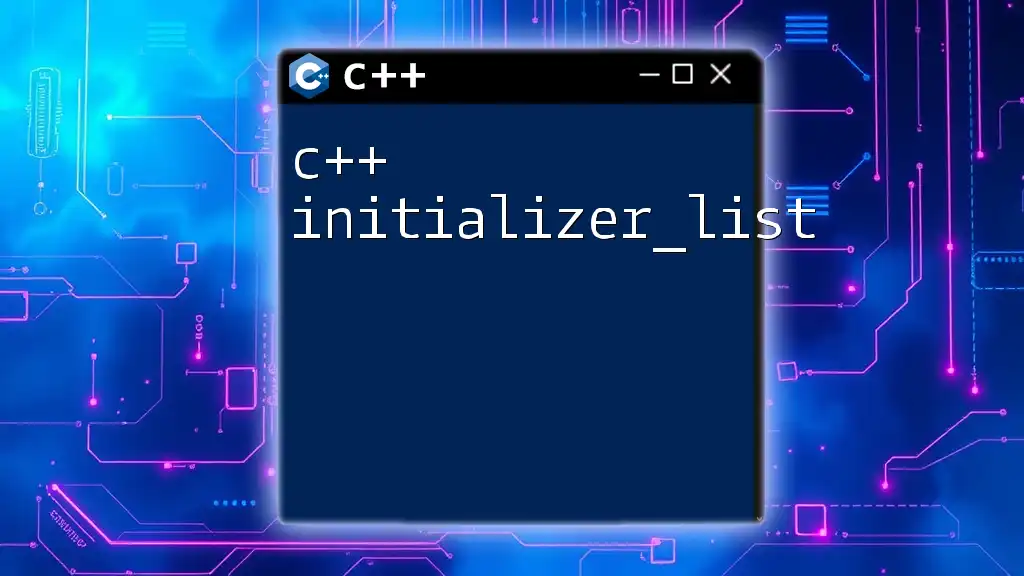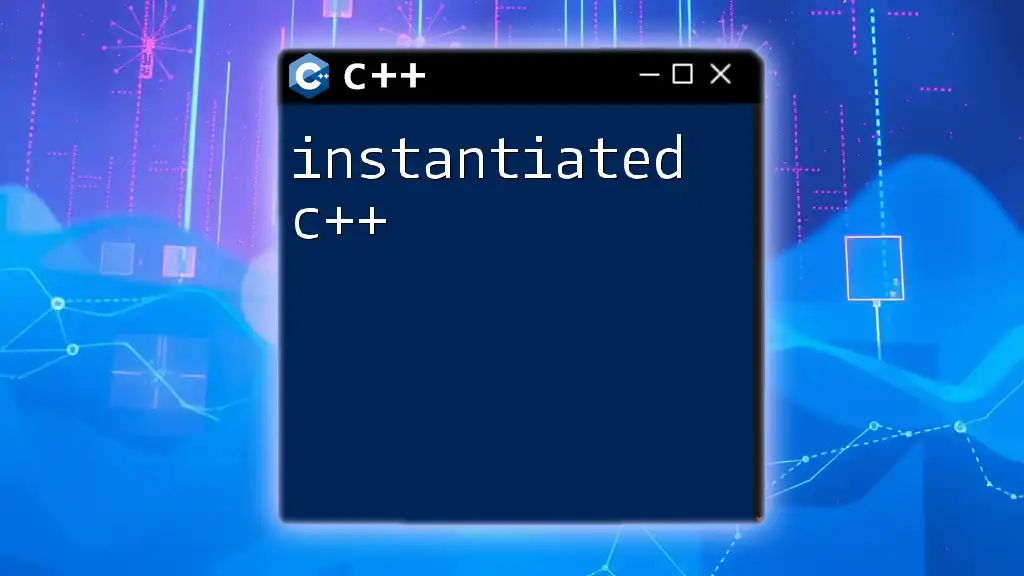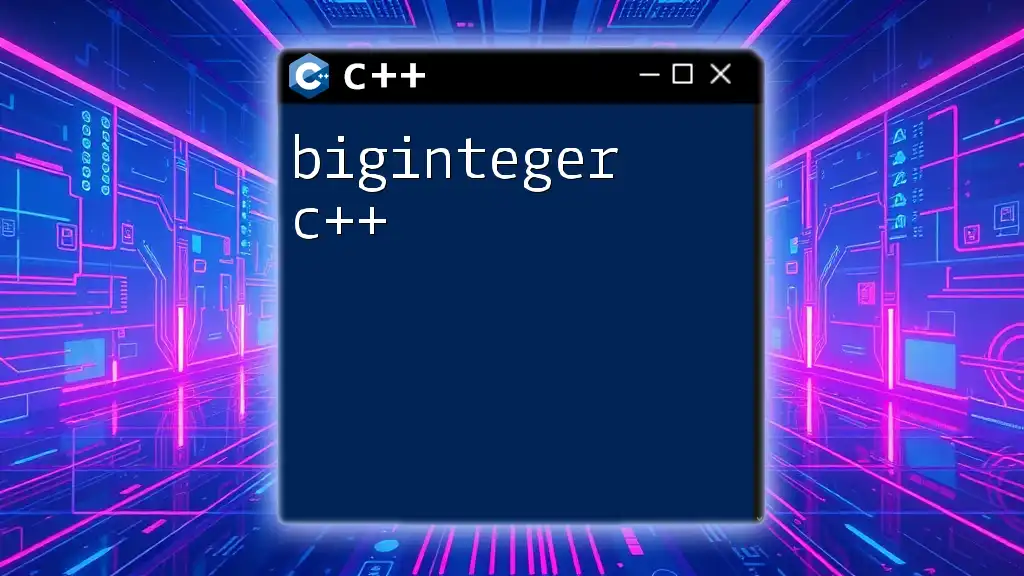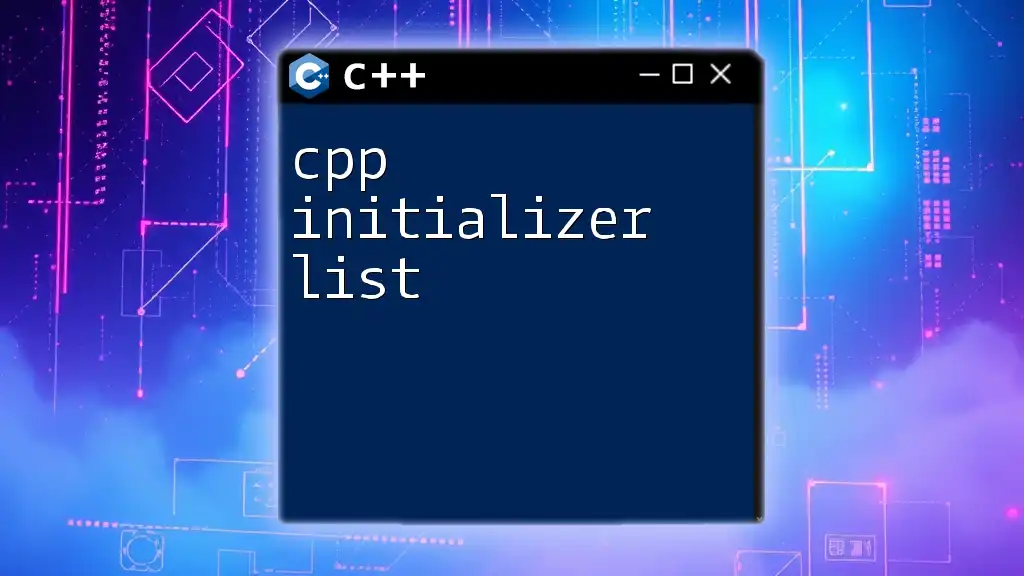Using uninitialized memory in C++ can lead to undefined behavior, as it may contain garbage values that can cause errors or unpredictable results in your program.
Here’s a simple example demonstrating the issue:
#include <iostream>
int main() {
int x; // Uninitialized variable
std::cout << "Value of x: " << x << std::endl; // Undefined behavior
return 0;
}
Understanding Uninitialized Memory
What is Uninitialized Memory?
Uninitialized memory refers to memory allocated by the C++ program that has not been assigned a defined value before being accessed. This can occur in various contexts, notably with local variables on the stack or memory allocated dynamically on the heap. Understanding where and how uninitialized memory arises is crucial for writing safe and efficient C++ code.
Why Is Uninitialized Memory a Concern?
Accessing uninitialized memory leads to undefined behavior, which can cause unpredictable results in your program, including crashes, data corruption, or security vulnerabilities. For example, attempting to read an uninitialized variable may return any value, leading to erroneous computations or logic flows in your application. Consider this simple yet telling example:
int main() {
int a; // uninitialized
std::cout << a; // Undefined behavior
return 0;
}
In this snippet, the variable `a` is uninitialized, and its value is printed directly, resulting in undefined behavior that could yield any random value.
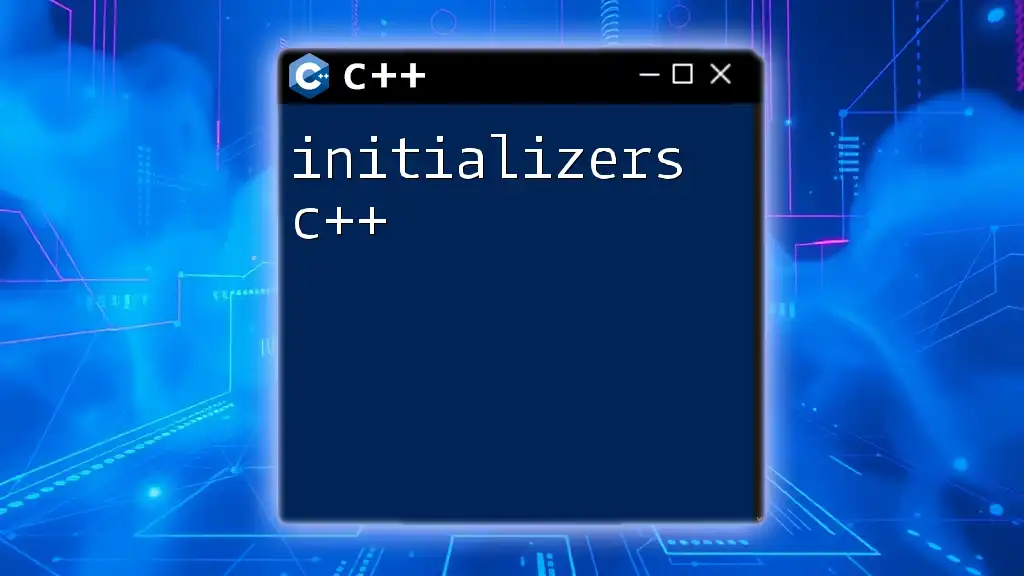
Memory Initialization in C++
Automatic Initialization
In C++, variables that are automatically allocated, such as local variables on the stack, are not initialized automatically. This can be especially hazardous since they can contain garbage values left behind in memory. For example:
int main() {
int a; // uninitialized
std::cout << a; // Undefined behavior
return 0;
}
In the code above, since `a` is not initialized, it may have an arbitrary value, leading to unpredictable results when fetched.
Static and Global Variables
On the other hand, static and global variables are automatically initialized to zero if not explicitly provided with an initial value. This is a key feature you should leverage:
int globalVar; // Automatically initialized to zero
void function() {
static int staticVar; // Also initialized to zero
}
Both `globalVar` and `staticVar` start from a known state of zero, minimizing the risk associated with uninitialized access.
Dynamically Allocated Memory
When allocating memory dynamically using `new` or `malloc`, the behavior of uninitialized memory is similar to stack memory. If you do not explicitly initialize it, you may encounter the same dangers. For example:
int* ptr = new int; // Uninitialized on heap
std::cout << *ptr; // Undefined behavior
In this case, `ptr` points to a newly allocated memory region, but the content of that memory is undetermined.
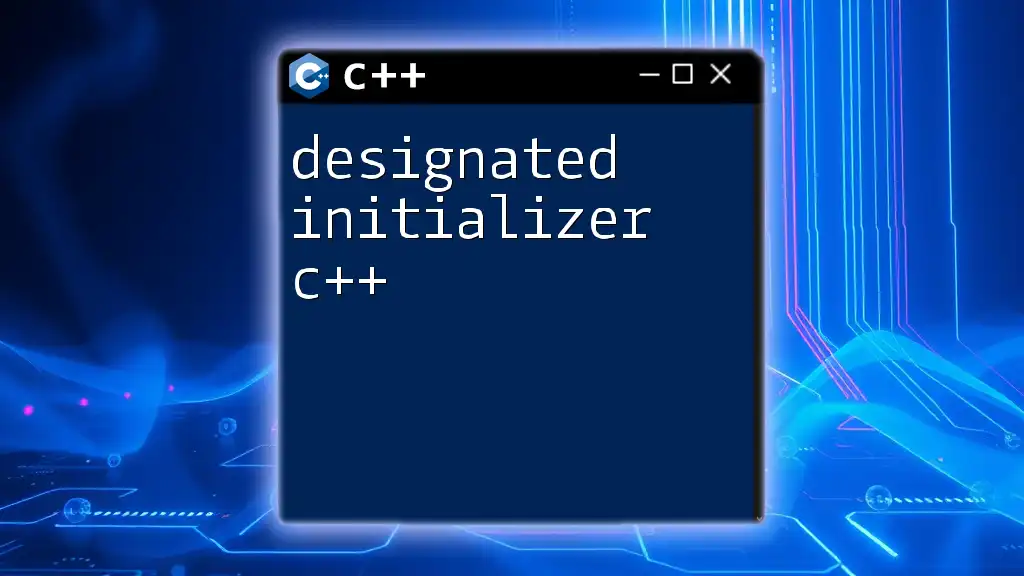
Best Practices in C++
Always Initialize Variables
Always initializing your variables when you declare them is a foundational habit to cultivate. This helps you avoid the pitfalls associated with uninitialized memory. Instead of:
int a; // uninitialized
You should aim for:
int a = 0; // Safe initialization
Use Smart Pointers
Utilizing smart pointers, such as `std::shared_ptr` or `std::unique_ptr`, can help manage memory effectively and reduce chances of encountering uninitialized memory:
std::unique_ptr<int> smartPtr = std::make_unique<int>(0); // Proper initialization
Smart pointers maintain ownership semantics and automatically handle deallocation, further safeguarding against memory management errors.
Utilize Compiler Warnings
Take advantage of your compiler’s capabilities by enabling useful warnings related to uninitialized memory. For instance, compiling your code with flags like `-Wall` (for GCC) can help catch potential issues:
g++ -Wall my_program.cpp
This command will provide warnings for several situations, including those related to uninitialized memory, aiding you in writing more robust code.
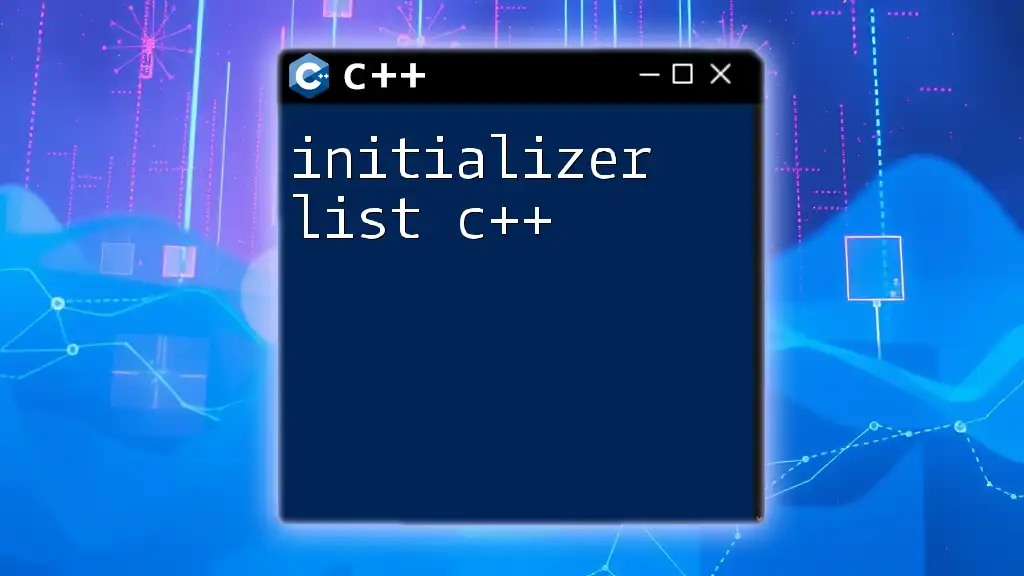
Detecting Uninitialized Memory
Tools for Detection
There are several tools available for detecting uninitialized memory access, such as Valgrind and AddressSanitizer. These tools can help identify where your program might be accessing uninitialized memory, thereby preventing potential runtime errors.
Example Code for Detection
Consider the following example, which showcases how uninitialized memory might arise:
#include <iostream>
void function() {
int a; // uninitialized
std::cout << a; // This may get caught by Valgrind
}
int main() {
function();
return 0;
}
When running this code under Valgrind, you'll receive an alert regarding the access of the uninitialized variable `a`, guiding you to correct the issue before it manifests during execution.

Common Scenarios of Uninitialized Memory Access
Function Parameters and Local Variables
Uninitialized memory can also stem from function parameters and local variables. If a function receives uninitialized inputs, it propagates the absence of defined data. For instance:
void foo(int x) {
int a; // uninitialized
std::cout << a + x; // Undefined behavior
}
Here, the local variable `a` remains uninitialized, leading to unpredictable results when used in conjunction with `x`.
Returning Local Variables
It’s also risky to return addresses of local stack variables. This will lead to accessing freed memory once the function scope ends. For instance:
int* getPointer() {
int localVar; // uninitialized
return &localVar; // dangerous: returning the address of a local variable
}
Accessing the returned pointer outside the function will likely yield garbage values or crash the program.
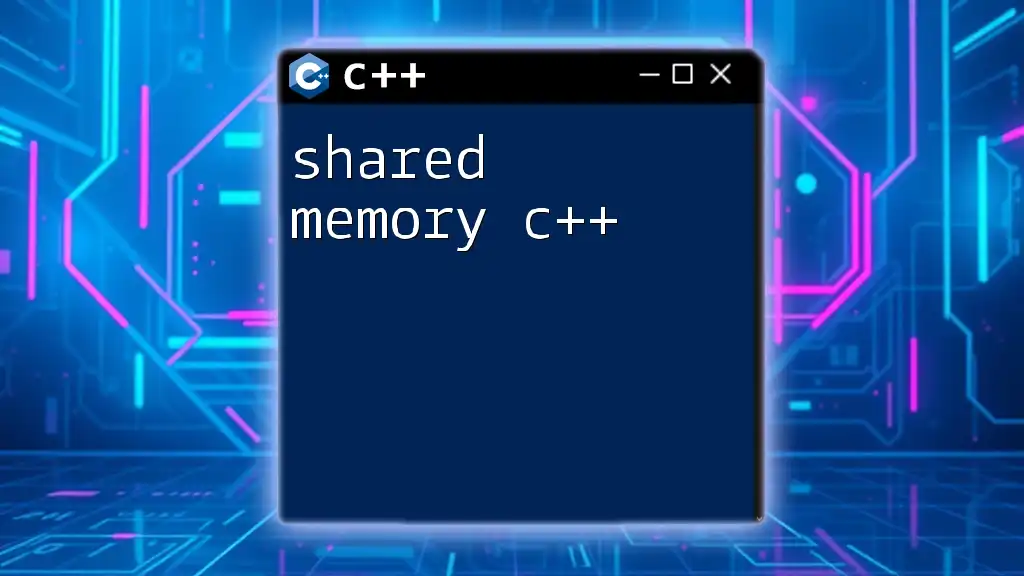
Conclusion
Understanding using uninitialized memory in C++ is vital for efficient programming. By following best practices like always initializing variables, employing smart pointers, and utilizing compiler warnings, you can significantly reduce the risk of encountering undefined behaviors in your code. Furthermore, employing detection tools can aid you where your vigilance might fall short, ultimately leading to a more reliable application.
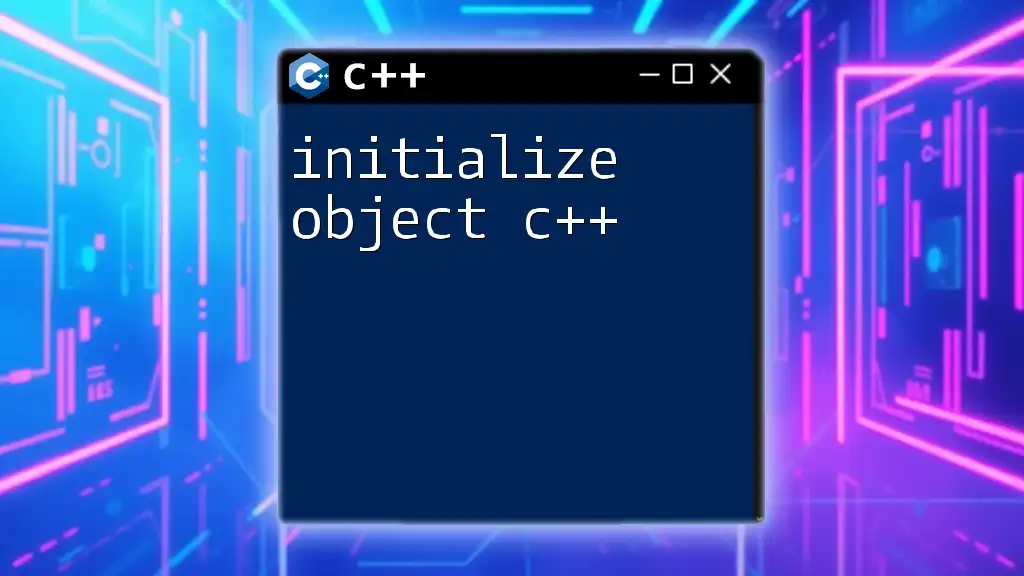
Additional Resources
Recommended Reading and Tools
For further expertise in managing memory in C++, consider delving into library documentation, online courses, or classic textbooks. Learning about newer standards, such as C++11 and beyond, will also equip you with modern techniques to mitigate uninitialized memory issues.
Experimentation with advanced C++ topics—like RAII and memory pool management—will help you broaden your skills and enhance your memory management strategies. Keeping abreast of these trends will ensure your code remains robust, efficient, and safe.

